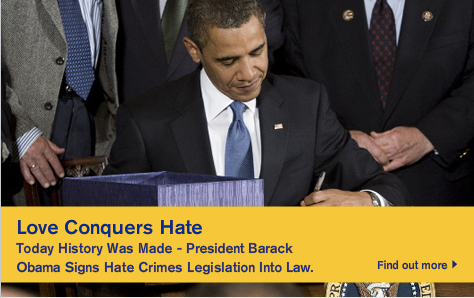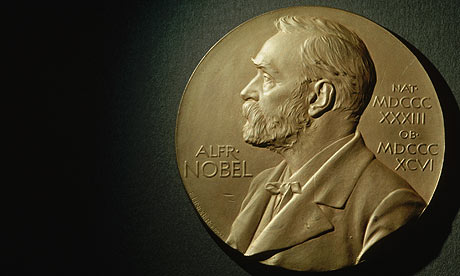11 years later, Hate Crimes Bill Passes

This blog post contains an excerpt from something I posted back in March. I'm reposting it because there is cause to celebrate today. 11 years after his death, the Matthew Shepard Hate Crimes Bill that was fought so hard for has been approved by Congress and today signed by the president and sealed in law.
I cannot overstate the importance of this moment. This is the first time ANY federal equality measure protecting LGBT rights has become law. The very first time.
However, in stating this there cannot only be celebration but an effort to talk about why this was necessary in the first place. For example on NPR even, people are asking questions about why you need additional laws for already illegal crimes.
Example: "We have laws already that protect everyone. Is murdering someone who is a black gay women worse than murdering a white man? If people want to be treated equal then the laws should be equal."Questions like these at first seem logical when you think of sin (or wrongdoing if you like) as purely individual. However, sin isn't just an action that is personal, but it can also be systemic. This systemic injustice is at the heart of what makes a hate crime so dangerous. So here we go...
from my blog on March, 11 2009:
http://www.nytimes.com/2008/02/23/us/23oxnard.html
Larry (Lawrence King), 15, had said publicly that he was gay, classmates said, enduring harassment from a group of schoolmates, including the 14-year-old boy, Brandon, charged in his death. Larry asked Brandon to be his valentine and the following day the 14-yr-old came to school and shot Larry in the head.
“God knit Larry together and made him wonderfully complex,” the Rev. Dan Birchfield of Westminster Presbyterian Church told the crowd as he stood in front of a large photograph of the victim. “Larry was a masterpiece.”
'Why we can't wait'
Your vote this year has the power to save lives and will affect millions of homosexual people in this country. This is why the Matthew Shepard Act matters, and why a position against it as a Christian is not just debatable but unconscionable...
Hate crimes differ from conventional crime because they are not directed simply at an individual, but are meant to cause fear and intimidation in an entire group or class of people.
All violent crimes are reprehensible, but hate crimes require additional emphasis in the justice system because they target a whole group and not just the individual victim. A violent hate crime is intended to "send a message" that an individual and "their kind" will not be tolerated, many times leaving the victim and others in their group feeling isolated, vulnerable and unprotected. Our justice system should then be able to "send a message" right back that there are not "less than human" unprotected members of society.
The Supreme Court ruled that, "bias-motivated crimes are more likely to provoke retaliatory crimes, inflict distinct emotional harms on their victims, and incite community unrest." And stated that, "When the core of a person's identity is attacked, the degradation and dehumanization is especially severe, and additional emotional and physiological problems are likely to result. Society then, in turn, can suffer from the disempowerment of a group of people."
If that all seems too heady, here's the more practical component. Hate crime legislation gives federal authorities greater ability to engage in crime investigations that local authorities choose not to pursue, and allow courts to consider and present motive in cases in which it previously went unheard. It supports appeals from cases dismissed due to local bias or foul-play. There are countless cases of crimes against individuals dismissed or lessened due to bias. Take the Jena 6 story right now. Without hate crime legislation, it is often harder for victims to have recourse when justice isn't served. This is not only sensible but completely necessary and it should undoubtedly apply to sexual orientation considering that 20% of hate crimes apply to it.
The church is moving forward in many of the arenas in which it has exercised poor judgment. The Catholic church recently unveiled its list of "social" sins declaring that the individual not only sins against him/herself but also systemically against portions of society in a globalized world. Even the leaders of the Southern Baptist Convention recently stated that on Global Warming that if it didn't change its stance that it would be disregarded as "uncaring, reckless, and ill-informed johnny-come-lately's just as it had during segregation and slavery and that the poor would be the first to suffer. But despite all of this understanding of implication, nearly everyone, even progressive Christian ethics groups like Sojourners are steering clear of "the gay issue" in America. Why? Why can Christian America love anyone except for their gay neighbor (or mexican one for that matter). Why do Christians in America so hate gays? Christians have to step up on this even if they don't agree with homosexuals. The Bible, both Old and New Testaments, demands care for the "other," and declares the ramifications for those who don't. Regardless of an individual's views on the issues, the church has to be out front on human rights abuses. Are murder, violence and abuse ever acceptable toward anyone? Even more fundamental: Is Love Conditional? These shouldn't be questions the church is allowing to go unanswered. You can't play neutral on this one and come out clean.
"I join the oppressors of those I choose to ignore,
and that's not just murder,
it's suicide."
- derek webb
Further thoughts:
MLK's "Letter from a Birmingham Jail" : http://www.mlkonline.net/jail.html
a must see film on the issue: http://www.forthebibletellsmeso.org
Labels: Christianity, Homosexuality


